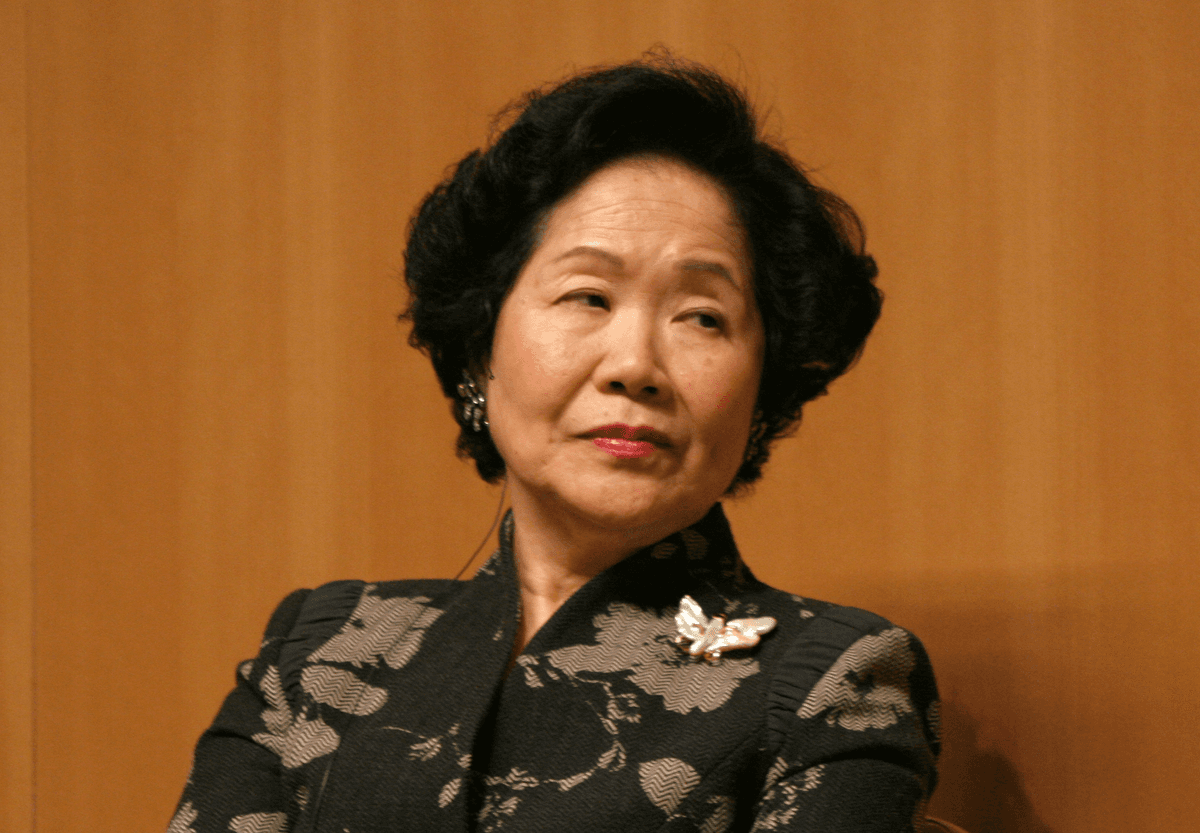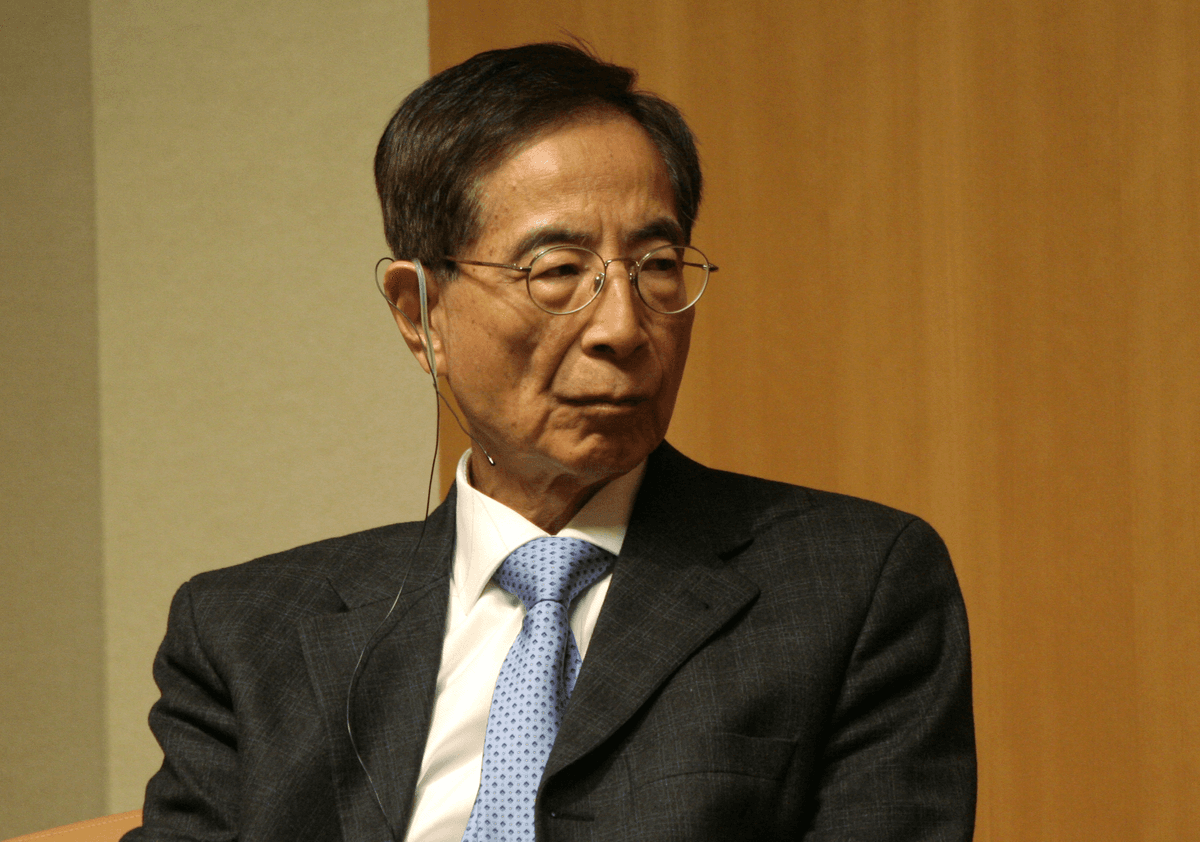WASHINGTON—Two prominent veteran political leaders from Hong Kong are visiting the United States to express their concern for recent attacks on democracy in Hong Kong and to warn the international community that democracy there is slipping away. The freedoms and rights that the people of Hong Kong have become accustomed to are eroding, they said.
“For so many years, Beijing has been postponing democracy,” said Martin Lee, a longtime democracy advocate who served in the Legislative Council from 1985-2008 and is the founding chairman of the Democratic Party of Hong Kong. He spoke alongside Anson Chan, former Chief Secretary of Hong Kong, at the National Endowment on Democracy (NED) on April 2. NED, a Congressionally-funded nonprofit that gives grants to support democracy around the world, gave Lee its Democracy Award in 1997.
“We should have had [democracy] in 2007. But now we are not going to have it in 2017 because Beijing would like to give the Hong Kong people the vote—one person, one vote—but subject to Beijing’s nomination. In other words, Beijing will give us puppet A, puppet B, and hallelujah, we elect one,” Lee said.
Beijing recently announced that only “patriotic” Hong Kong people can stand for chief executive.
Known by his supporters as Hong Kong’s Founder of Democracy and despised by Chinese communist officials, Lee, 75, reminds us that back in 1984 when Great Britain and China agreed to the Joint Declaration, promises were made. The concern back then was that the citizens of Hong Kong would flee in massive numbers when the People’s Republic of China assumed control of Hong Kong in 1997.
So, the concept of “one country, two systems” was devised to assure the Hong Kong people, outside investors, and others that Hong Kong’s economy and way of life would not change. The island of 7 million would have a great degree of autonomy from the mainland, and be called the Hong Kong Special Administrative Region (HKSAR).
The Joint Declaration states that Hong Kong’s capitalist system would remain for a period of at least 50 years, until 2047, and China’s communist system would not be imposed. The rights and freedoms—Hong Kong’s constitution—are spelled out in the Basic Law, which states in Article 26: “Permanent residents of the HKSAR shall have the right to vote and stand for election in accordance with law.”
Many countries, including the United States, gave their blessings to the Joint Declaration, Lee said. “Every country that supported the declaration, and continues to support it, owes a moral obligation to the people of Hong Kong to speak up, when something, like today, is going terribly wrong.”

Anson Chan, former Chief Secretary of Hong Kong, says that China is not living up to its promise of democracy in Hong Kong. She spoke at the National Endowment for Democracy April 2. (Gary Feuerberg/ Epoch Times)
Core Values Eroded
Anson Chan spoke of “blatant interference” from Beijing in Hong Kong governmental affairs. She said Hong Kong’s “core values” of “openness, transparency, level playing field, rule of law, freedom of expression, particularly freedom of the press,” were being eroded today by increasing interference from Beijing.
Chan identifies with the rule of law present during British colonial rule in which she served as chief of the civil service, a role she continued under China. Chan, 74, was the first ethnic Chinese to hold the second-highest governmental position in Hong Kong.
“Hong Kong people pride themselves in the fact that we have an identity that is separate from China,” she said. The core values are protected under the constitution, the Basic Law, she said.
She said that Beijing isn’t respecting “one country, two systems.” Beijing’s Central Liaison Office stationed in Hong Kong “has no role to play under the Basic Law,” and should not be interfering internally in the administration of Hong Kong, she said.
Chan said that the only alternative is to “press for full democracy.” She helped launch the Hong Kong 2020 campaign, which calls for universal suffrage for the election of Chief Executive by 2017, and, at the latest by 2020, free election of members of the Legislative Council.
Lee said, “We must do something to stop the erosion of our freedom.”
Currently, the Hong Kong people don’t vote for the chief executive, who is nominated and elected by a committee and then appointed by Beijing. Chan said that in a fair and open election, the nominating committee should not apply unreasonable restrictions to prevent someone for standing for election, such as a political philosophy.
Chan said, “The chief executive has no political mandate to govern.” Political parties are not encouraged, she said. These conditions create an adverse business climate, she said.
Lee said that the public perception of the current chief executive is that he was elected by cheating. He doesn’t command “the respect or trust of the Hong Kong people.”
Beijing needs to deliver on its promise, she said. “We see increasingly a paralyzed government,” she said.

Martin Lee, founding chairman of the Democratic Party of Hong Kong says that China is not living up to its promise of democracy in Hong Kong. He spoke at the National Endowment for Democracy April 2. (Gary Feuerberg/ Epoch Times)
Freedom Slipping Away
Lee said that Beijing wants to control the press. “We had four independent newspapers, but now there is only one, the Apple Daily.” The mainland puts pressures on advertisers, some of which are international banks, to cease advertising in the Apple Daily. “When that happens, how can you expect press freedom to continue?” he said.
Chinese Communist Party leader Xi Jinping came to Hong Kong two years ago. Lee said Xi told “the Chief Justice and other officials in a public occasion that our judges must cooperate more with our government… As a communist leader, he expects the Hong Kong judges to behave like Chinese judges! But that can’t be right.”
The mainland has a quota system, “a one-way permit scheme” that allows 150 people to come in per day, Chan said, who said it should be managed better. Lee said that Hong Kong government has no say or control over who can enter Hong Kong. He described how the system is abused with spies coming over from the mainland.
Mainlanders come in, get identity cards, then return to the mainland, wait seven years, come back and say they have been residing in Hong Kong during the seven year period. The immigration office will not check them. In this way, they secure permanent residency. Lee said they register to vote and on election day, they are bused from the mainland and vote as they are told. Lee said there are about 300,000 of these individuals.
Lee is barred from returning to the mainland, where he was born, he said in a 2008 interview with Time magazine. “As a Chinese citizen, I’m not allowed back to my own country even though I’m welcome in every other country in the world.”




